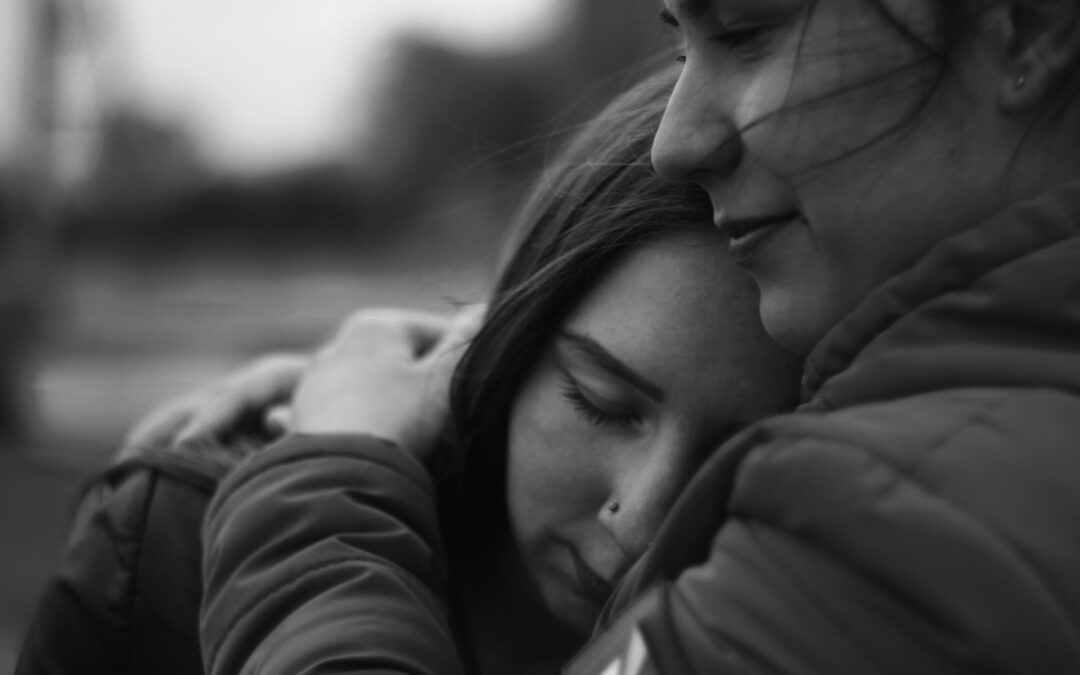
The Terms of My Surrender
From the moment you came into my life, I hated you. I despised you. You came on the heels of my worst nightmare come true – the death of my young daughter.
I didn’t know your name at the time. I just knew that you brought with you all the horrible feelings and emotions I had spent a lifetime learning how to repress and ignore.
You broke my defenses down like they were candles trying to stay lit in a hurricane. You pounded me with pain, panic, anger, confusion, hysterics, anguish. And too many more to list.
Mostly you came in waves. Pounding one emotion down on me after another, but in such quick succession it was hard to even breathe or stand. Sometimes the feelings and emotions came in combinations, leaving me a shaking, sobbing, angry mess.
Soon, people around me who knew better told me that you had a name. Your name was Grief.
When I realized who you were and how you operated, I decided to wage war on you. I felt I couldn’t possibly continue the barrage of emotions that constantly debilitated me, so I became determined to stop you in your tracks and send you back to the depths of darkness you came from.
In the early weeks and months, my first defense against you was to “play dead” like an opossum being hunted by predators. My mind became numb to dull your overwhelming pain. I felt as though I had become an automated machine going through the motions of life without really experiencing it. The sensation felt like when you stare at the open road in front of you on a long, boring drive and then can’t remember how you got from one place to another. But over time, you found ways to defeat my numbness.
I then tried distracting myself with work; burying myself with so much busyness you couldn’t force your way in. But you were always there lurking in the shadows waiting for your moment to strike. Most often you would pounce when someone broke me out of my busy stupor by innocently asking, “How are you?” At that moment, my concentration broke and you flooded into every crevice of my body. Enraged, I thought to myself, “Do you REALLY want to know how I am?” But I’d bite my tongue and flatly answer, “Fine,” while you surged your pain through my body.
Having lost these battles, I began scanning over countless books and articles to try to discover your tactics and secret weapons so that I could plot my next moves.
I attended therapy and support groups to learn from the experts and others who had survived you so that I could gleam their winning strategies and use them for myself in defeating you. It didn’t do much good. I found myself withdrawing from everything and everyone around me to try to isolate myself from you and all your triggers. It only served to strengthen your resolve.
Occasionally, I won small victories. Talking about you and your oppressiveness to others seemed to send you away momentarily. But in the quiet moments, you always reappeared. Writing about you made me feel as though I had the upper hand, but the glow of victory soon faded after the last word had been written. Exercising seemed to alleviate your oppression, but in retaliation, you often cranked up your attacks to leave me too exhausted – physically and mentally – to find the motivation to work out. Spending time in nature often gave me a sense of peace and inner strength that softened you some, but could never defeat you altogether.
I spent years fighting you until I finally accepted this fact: I cannot beat you. I cannot make you go away.
In fact, the more I fight you, the stronger your feelings and emotions take over me. I’ve found that you feed on fear and anger. I’ve discovered you thrive and grow from any attempts to control or resist you.
So, if I can’t win, I officially wave my white flag and surrender. But I do so on my terms:
I Will No Longer Fear You
Despite the few times when I thought the only escape from you was to end my own life, I am still here; still standing. I have survived every painful emotion; every panic attack; every uncontrollable rage; every bout of severe depression. I am stronger than I ever thought possible, and will no longer fear your attacks. While I know some will still come out of nowhere, take my breath away and bring me to my knees, I will stay calm and know that your attack will eventually subside. I will ride the wave and let it take me where it will, knowing that eventually I will find my way home.
I Will Support Your Other Victims
Much like others supported me in my time of need; I will reach out a supportive hand to anyone who is within your grasp. I will listen quietly to their story as many times as they need to tell it. I will share my experience with those who seek it in hopes it will bring them a sense of understanding and community.
I Will Learn From You
Since you can be a destructive force to those who resist you, I will instead pull you closer and look to you as my ultimate teacher. For I have learned that deep within your pain and suffering lie kernels of truth and knowledge on how to live a meaningful life: a life without fear; a life filled with love and compassion. As you were created by losing a cherished loved one, you have love at your core. I will learn how to find the love at the center of every pain. I will learn to find the truth at the center of every fear. And when I learn these truths, I will share my knowledge with the world.
These are the terms of my surrender, and I know you have no choice but to accept them.




 This website was inspired by the memory of Margareta Sol Kubitz in hopes of helping others work through the pain of grief.
This website was inspired by the memory of Margareta Sol Kubitz in hopes of helping others work through the pain of grief.